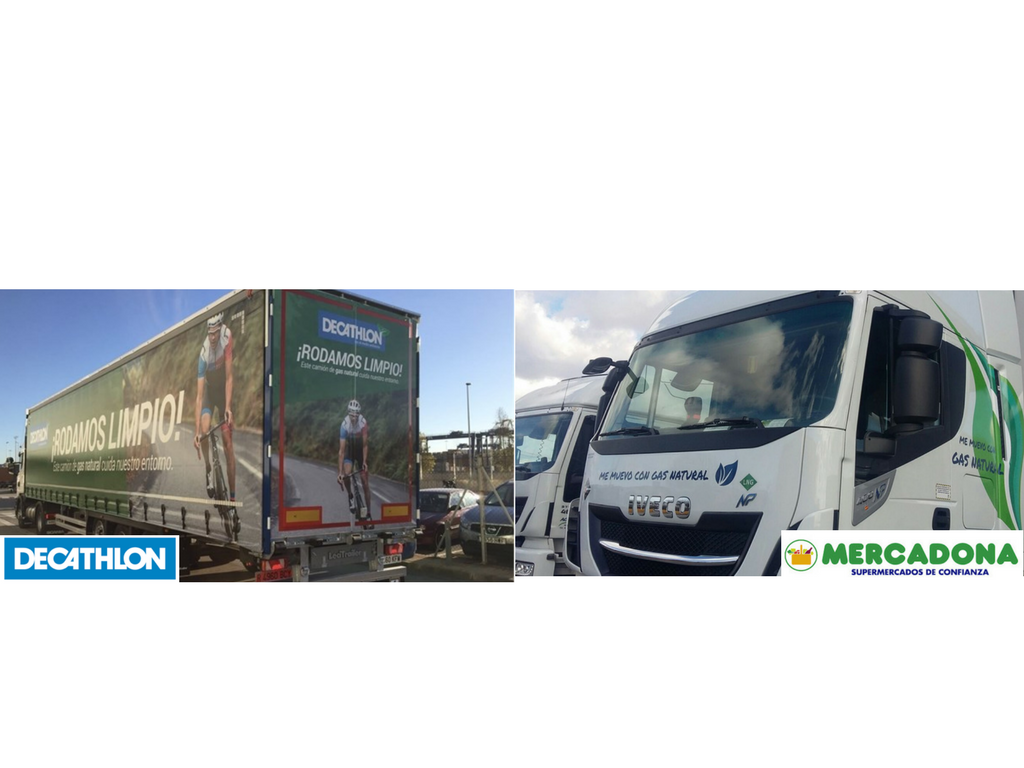
Decatholn, the French sporting goods retailer, will use liquefied natural gas (LNG) powered trucks for its logistics networks in Barcelona, Seville and Madrid.
Without specifying the number of vehicles it has decided to acquire, the company has announced that it will replace diesel trucks with liquefied natural gas (LNG) trucks for moving its goods from its regional logistics centers in El Prat de Llobregat and Sant Esteve Sesrovires and two shops in Barcelona, that record at least 1,000 trips each year.
In addition, Decathlon will use LNG trucks to connect both the logistic centre of Seville with its stores in the same province and in Murcia, and the logistic centre of Getafe (Madrid) with various shops of the province and of the surrounding eastern areas.
Decathlon believes it can reduce the CO2 emissions generated by road transport of its products: according to initial estimates, LNG should allow a 36% reduction in CO2 emissions for each journey.
The company has also started the experimental use of hybrid vehicles in its urban transports in Madrid, between the Getafe logistics center and the large Decathlon Princesa store and six other Decathlon City stores.
Mercadona, the large distribution company with over 1500 supermarkets in Spain, and its transport suppliers will allocate a further 4 million euro in 2018 towards incorporating 40 liquefied natural gas (LNG)-propelled lorries in Madrid, Barcelona and Valencia, which will join the 7 vehicles of these characteristics that have already been operating since 2017, and that came at an investment of 1 million euro.
ECO-quality vehicles will gradually be incorporated to the fleet throughout the year; these will operate in urban centres featuring high densities of population and movement, which will contribute towards reducing the risk of exceeding the allowed NOx and suspended particle limits usually in place in this type of city.
This initiative comes in line with the ones already being implemented in vehicles regarding the so-called “last mile” of distribution in cities. To this end, the company already has 3 vans that are adapted to operate on dual fuel (gas/diesel), and in 2018, it foresees using 3 vans that are 100% propelled by CNG (Compressed Natural Gas).
The investments carried out in the last few years have allowed for 92% of the company’s fleet to achieve category C of the DGT (Spanish General Directorate for Transportation), that is to say, vehicles that meet with standards Euro VI and Euro VI C, which are the most stringent in terms of emissions.
Source Decathlon:
http://saladeprensa.decathlon.es/wp-content/uploads/2018/02/22022017_NdP_Decathlon-reducira%CC%81-las-emisiones-de-CO2-generadas-en-sus-operaciones-de-transporte.pdf
Source Mercadona:
https://www.mercadona.es/es/actualidad/mercadona-y-sus-proveedores-de-transporte-invertiran-4-millones-de-euros-mas-en-2018-en-tecnologias-limpias/news
 IT
IT  en
en

